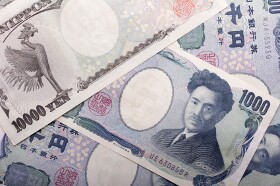
There were plenty of macroeconomic reports released in Japan today. They were mixed, failing to provide a clear picture of Japan’s economic well-being. But as it often happens, the yen largely ignored domestic data. Instead, the currency surged against other most-traded currencies due to risk aversion on the Forex market.
US President Donald Trump twitted about plans to impose tariffs on Mexican imports, and that triggered flight to safety among investors. The Japanese yen, being considered a safe currency, benefited from it hugely.
As for macroeconomic reports, the Tokyo core Consumer Price Index rose 1.1% in May from a year ago, demonstrating a slower growth than 1.3% registered in April and missing the consensus forecast of 1.2%. The unemployment rate inched down from 2.5% to 2.4% in April, in line with expectations. A preliminary estimate showed that industrial production rose 0.6% on a seasonally adjusted basis after falling at the same rate in March, while analysts were expecting a smaller increase by 0.2%. Retail sales rose 0.5% in April from a year ago, whereas economists had predicted the same 1.0% rate of growth as in the preceding month. The consumer confidence was at 39.4 in May, down from 40.4 in April, while the median forecast had promised an increase to 40.6. Housing starts dropped 5.7% in April, year-on-year, after rising 10.0% in March, missing the average forecast of just a 0.8% decrease.
USD/JPY sank from 109.61 to 108.75 as of 10:15 GMT today. EUR/JPY tumbled from 121.99 to 121.27. GBP/JPY plunged from 138.22 to 136.86.
If you have any questions, comments, or opinions regarding the Japanese Yen, feel free to post them using the commentary form below.